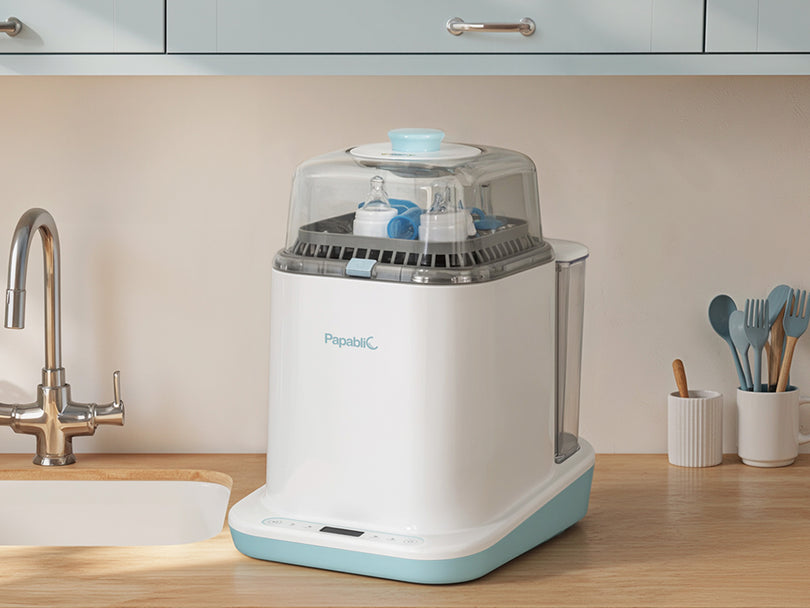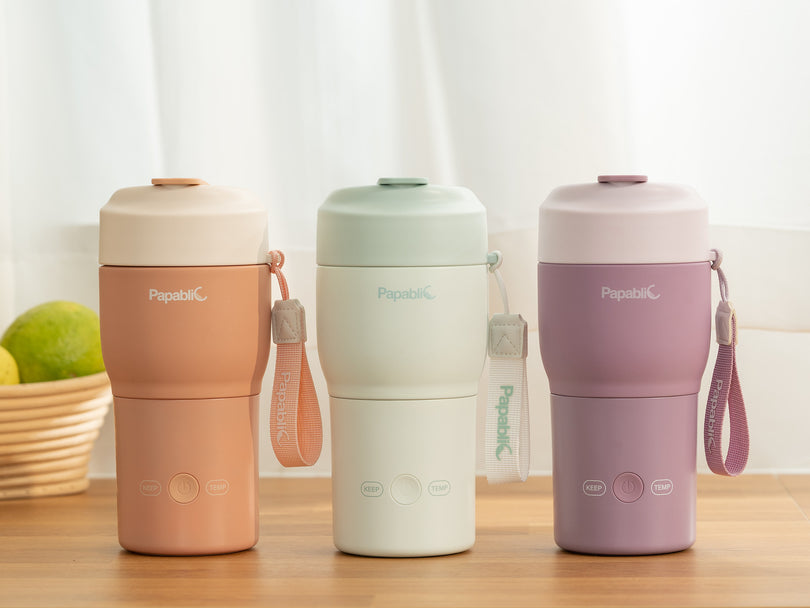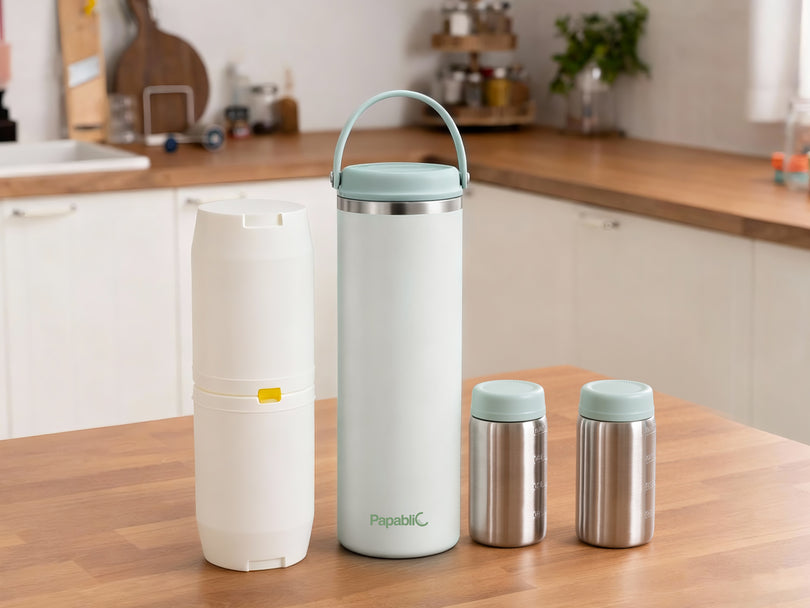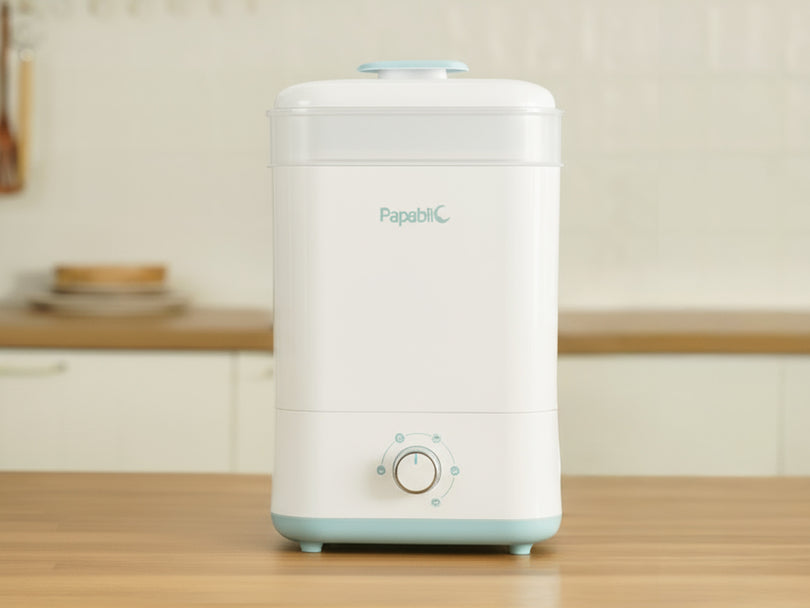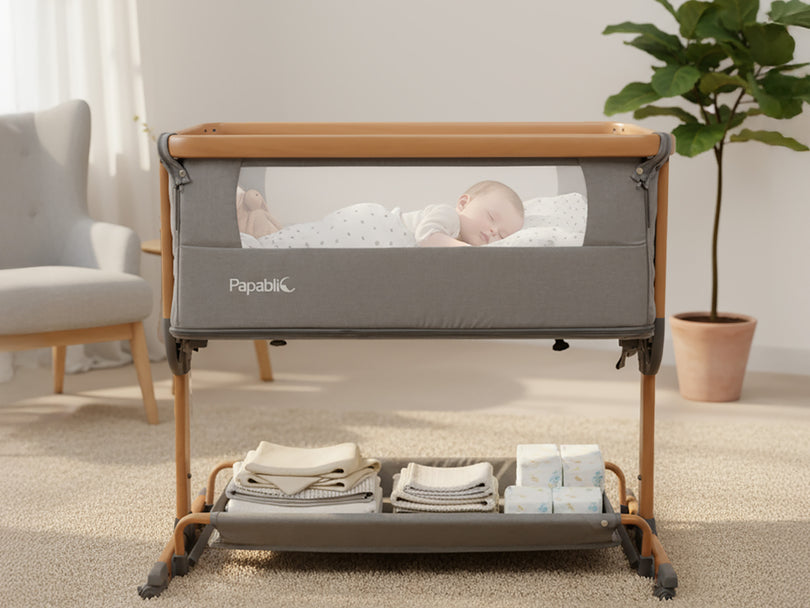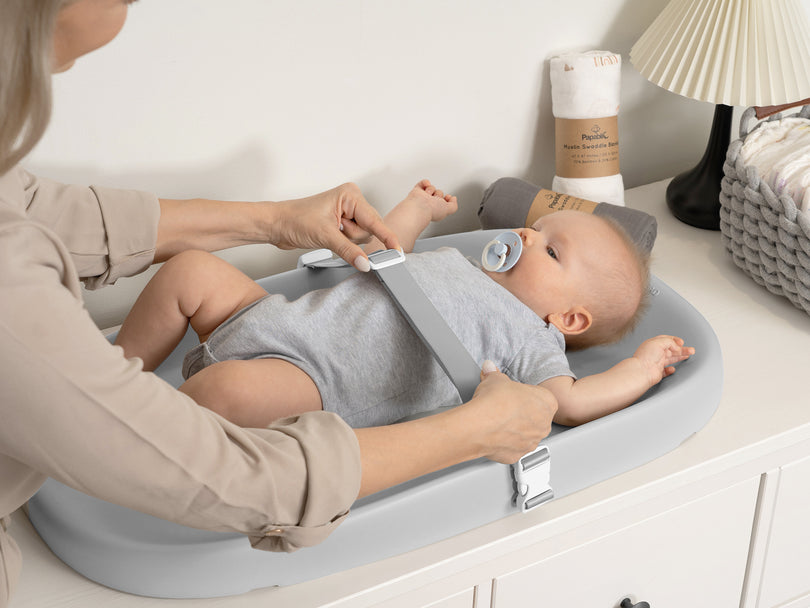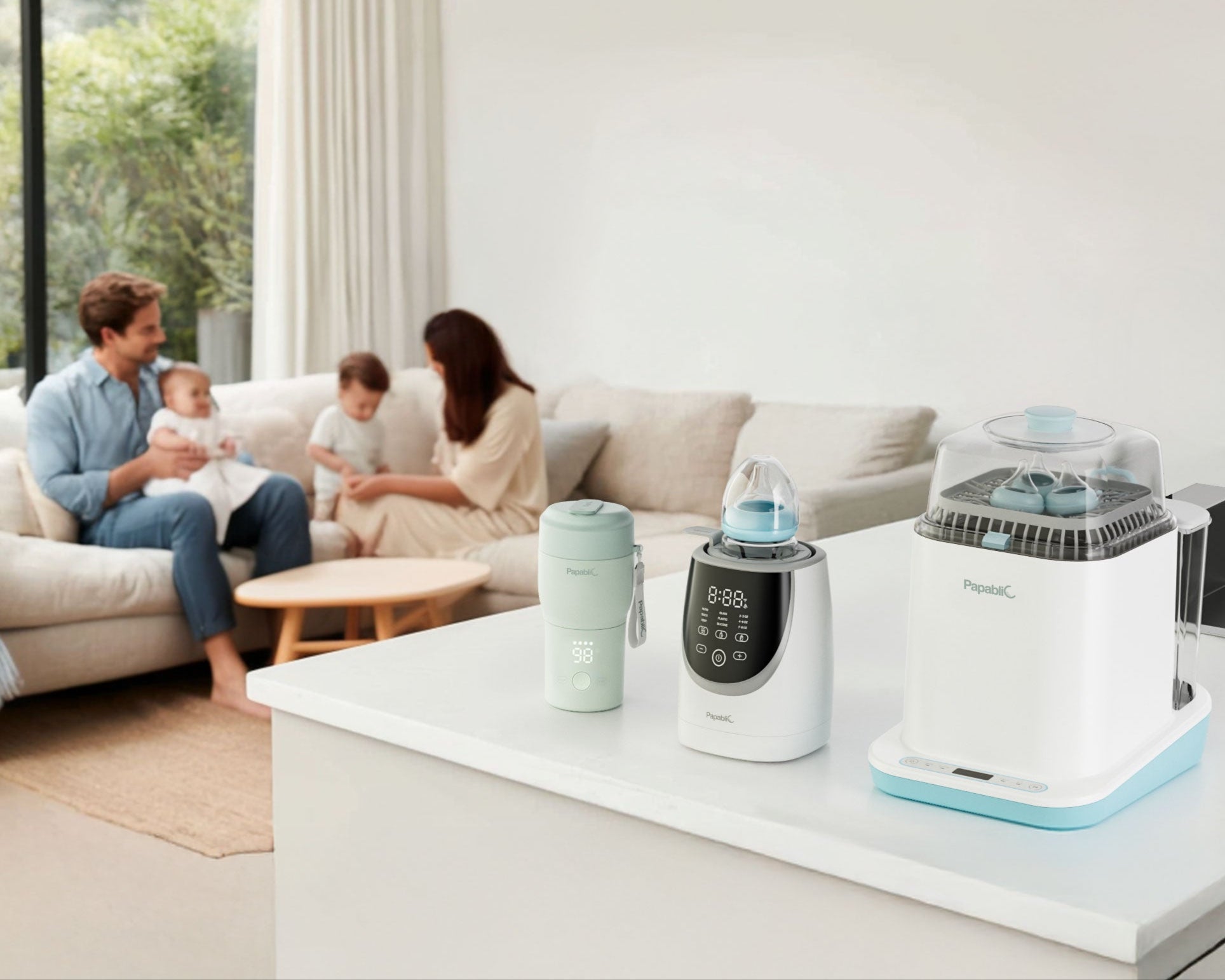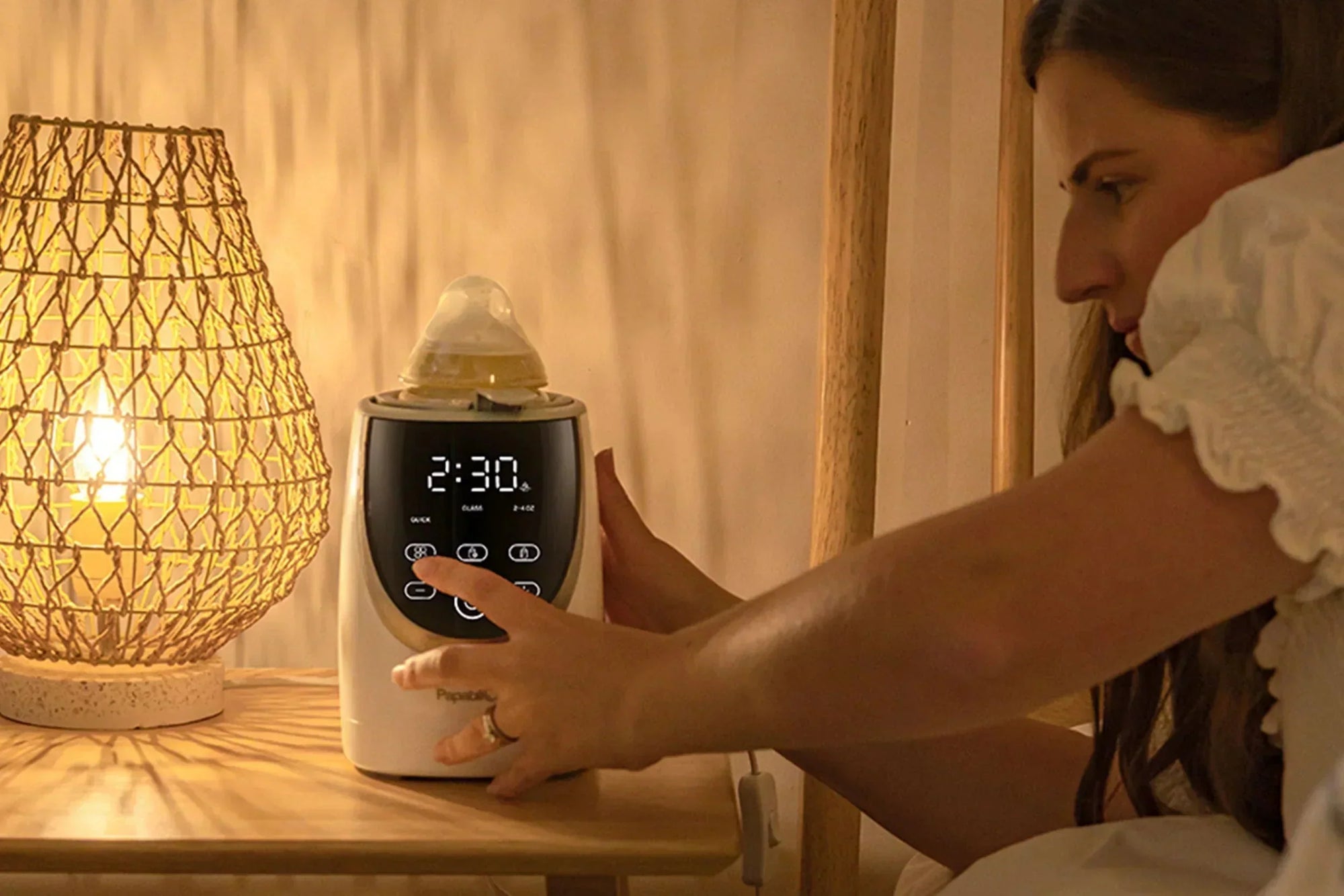Baby crying at night is a problem that almost all new parents will encounter. Even after just feeding, some babies will still cry, which often makes parents feel confused and anxious.
In fact, babies' crying is a way of communication. They express discomfort, needs, or emotions through crying. This aims to help you understand the reasons why babies cry at night and provide some practical tips to help babies fall asleep better, with the help of thoughtful baby products.
Why Babies Cry at Night
It’s normal for babies to cry at night, and this behavior can be caused by a variety of factors. For example, swallowing too much air during feedings can lead to gas or colic, which can cause discomfort. Wet diapers that lack ventilation can also make babies feel uneasy. An overstimulating environment, too much light, noise, or uncomfortable temperatures can affect your baby’s sleep.
Sometimes, babies just need a parent’s warm embrace and comfort to feel safe. Because babies have short sleep cycles and are easily awakened, they often cry to express their needs or seek comfort before falling back asleep.
What Parents Should Do When Baby Cries at Night
When the baby cries at night, parents will inevitably feel helpless; this is actually a common phenomenon. The most important thing is to observe the baby's reaction, be patient, and take it slowly.
You might as well try the following methods:
1. A comfortable sleeping environment
Keep the room quiet, the lights soft, and the temperature moderate.
2. Hold the baby and pat his back
Hold the baby gently in your arms and pat his back to make him feel your comfort and security.
3. Check diapers and clothes
Make sure the diapers are dry and the clothes are comfortable, not too hot or too cold.
4. Parents stay relaxed
Babies can feel your emotions, and the calmer you are, the more you can help them calm down.
5. Portable baby bottle
If your baby is hungry again during the night, using the best bottle warmer and sterilizer can make feeding faster and easier. A portable bottle warmer reduces waiting time, which helps soothe your baby more quickly.

Tips to Help Baby Sleep Better at Night
In order to help your baby fall asleep better, parents can make some adjustments in daily details. Good sleeping habits are not achieved overnight, but are gradually established through meticulous care and regular work and rest. The following simple and practical tips will help create a stable and comfortable night environment, help your baby relax, fall asleep more easily, and stay asleep all night.
1. Reduce stimulation before bedtime
Try to avoid strenuous activities or bright lights within 1 hour before bedtime, such as turning off the TV and reducing playtime. Creating a peaceful sleeping atmosphere can help your baby calm down.
2. Use gentle soothing techniques
Try to hum, rock, pat on the back, or use a soothing blanket or pacifier to help your baby relax.
3. Keep quiet during nighttime feedings
Use a night light and gentle sounds to keep your baby asleep. A quiet bottle warmer sterilizer is especially helpful to reduce noise and disruption during late night feedings.
Papablic Helps Babies Sleep Through the Night
Choosing a convenient nighttime nursing tool can also reduce parents' stress. Papablic Portable Bottle Warmer & Sterilizer On the Gocan quickly heat breast milk or formula to prevent babies from getting emotional due to waiting too long.
1. Easy to clean anywhere
The innovative wide-mouth design allows for quick, hassle-free cleaning, perfect for parents on the go.
2. World’s first portable milk warmer with built-in sterilizer
The first of its kind, combining convenient milk warming with integrated sterilization to ensure hygiene and peace of mind wherever you are.
3. Faster, smarter warming
Heats milk up to 30% faster than standard warmers—just 2 minutes and 30 seconds to warm 2 oz of cold milk.
4. Fast charging
Equipped with 30W Type-C fast charging, it reaches a full charge in only 1 hour and 50 minutes—ready whenever you need it.

Some Precautions When Your Baby Is Sleeping
It is the wish of every parent to let the baby sleep peacefully and at ease. Good sleep not only affects the baby's mood, but is also closely related to the development of the body and brain.
Parents can follow the details in daily care:
1. Adjust the sleeping position
The baby should sleep in a supine position, which is currently the most recommended sleeping position. Remember not to let the baby sleep on his stomach, especially when he cannot turn over on his own.
2. Spacious sleeping space
The baby's bed should be as simple and safe as possible. Do not place plush toys, large pillows, heavy quilts, or anti-collision fences. These items may block the baby's breathing and increase the risk of suffocation.
3. Regular work and rest time
Helping the baby develop a fixed work and rest rhythm, falling asleep and waking up at roughly the same time every day, will help form a stable biological clock and reduce the number of nighttime wake-ups. You can arrange a short bedtime activity before bedtime, such as taking a bath, listening to soft music, telling stories, etc., to help the baby relax.
4. Avoid frequent interruptions to sleep
Try to reduce the need to change the environment or frequently pick up and put down the baby at night. Excessive intervention may interrupt their autonomous sleep process and affect sleep quality.
5. Maintain a comfortable sleeping environment
Ensure that the room is quiet, dimly lit, and the temperature is moderate (20-24°C) to improve the baby's sleep efficiency. Avoid direct air conditioning, and do not dress the baby too much or too little to prevent sweating or cold.
6. Appropriate sun exposure and activities during the day
Take the baby to get some sun during the day and increase outdoor activity time, which will help promote the development of the circadian rhythm and make it easier to enter a deep sleep state at night.
Conclusion
Babies crying after feeding at night does not mean that they are not full, but rather that they are experiencing other discomfort or emotional expressions. Parents can understand the reasons and use appropriate comfort methods and sleep guidance, combined with the assistance of smart care tools such as Papablic, to help babies sleep better and make the family more peaceful at night.
Read more:
Newborn Crying When Feeding: Top Reasons, Soothing Tips & When to Worry
How to Choose the Right Bottle Sterilizer
How to Travel with a Baby: Essential Tips for Stress-Free Trips

